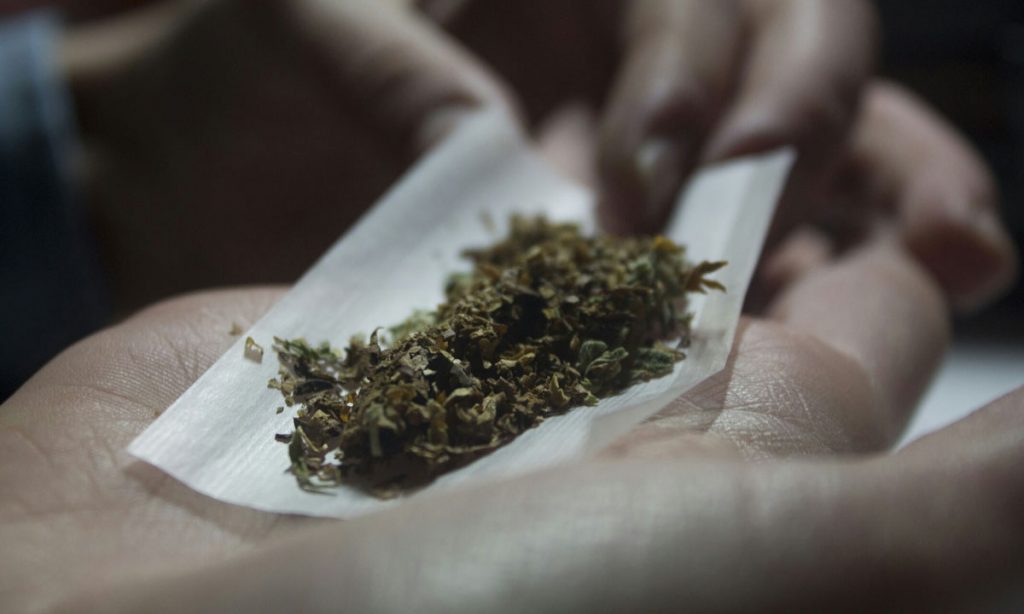Withdrawal symptoms experienced when quitting marijuana will not always be severe for everyone. Here’s why.
In recent years, the attitude of the majority of people towards cannabis has changed, mostly from negative to positive. In the past, cannabis was often viewed as a potential threat for drug abuse in young people, which gave it a bad reputation in different communities. More states have legalized marijuana for both medical and recreational use because of the abundance of positive research, the endless work of marijuana advocates, and so on. Now that cannabis is legal, there have been a lot of debates and discussions among cannabis users and enthusiasts regarding several cannabis related issues, including the million-dollar question: do you experience withdrawal if you stop using cannabis cold turkey?
First, is cannabis addictive? Well, marijuana can be additive; it all depends on how you use it. So if not properly dosed and you abruptly stop consuming cannabis, you may experience what is termed as “withdrawal.” In America, reports show that more people (1 in 6) may become addicted to cannabis especially if they use marijuana before 18 years of age.
The symptoms of cannabis withdrawal
The symptoms will tell you if you are suffering from withdrawal, and these include:
- Irritability makes the individual feel like something is missing.
- Reduced appetite because marijuana is known for boosting our appetite.
- Sleep disorders like insomnia which can be prolonged
- Chills even when it’s not cold
- Headaches
- Depressed and anxious feelings
- A loss of focus and concentration
- Consistent sweating
- Stomach issues
The symptoms mentioned above can range from mild — especially for those who take cannabis in small doses — to severe symptoms for those who take it a lot. But the symptoms are not dangerous or life-threatening, yes they are unpleasant, but you don’t have to fear for your life.
It should be noted that if you smoke marijuana less frequently, you may not experience withdrawal symptoms when you stop smoking it. The withdrawal becomes very hard when the consumer is a regular smoker.
More importantly, the longer you’ve used marijuana, the higher the possibility of your withdrawal process getting heightened, thus, making the symptoms worse. So what causes these symptoms?
The causes of withdrawal symptoms
The withdrawal symptoms of marijuana may not be as hard as withdrawal symptoms from other substances such as alcohol, opioids, cocaine, and heroin. A person’s withdrawal symptoms from using these other substances can be dangerous, so these are entirely different from marijuana withdrawal symptoms.

Now those who take marijuana experience physical and psychological symptoms caused by your body having to adjust to not having a constant supply of delta-9 tetrahydrocannabinol (THC).
The THC compound is a primary psychoactive ingredient in marijuana, so when you smoke marijuana regularly, your brain cultivates a tolerance for it.
RELATED: Marijuana Withdrawal Is Real: What You Need To Know
As you smoke more marijuana, your brain starts to depend on the supply of THC, but when you stop smoking, the brain adjusts to not having it. Your body needs to become accustomed to this new state of not having THC, and this is when you start to experience the unpleasant symptoms.
The symptoms can be increasingly unpleasant such that some people go back to smoking marijuana which increases the problem. While the problem is difficult in itself, going back to marijuana is not a good choice, so we must understand the concept of managing the symptoms effectively.
Managing and preventing withdrawal symptoms
One of the reasons why some people see withdrawal as an arduous process is that they cannot manage it and also don’t know how to prevent it. If you want to stop smoking, the first step to take is to speak with your doctor about the aftermath of your quitting smoking.

The doctor or substance abuse specialist may not give you any peculiar instructions on what to do, but it is a great idea to talk to someone first about your decision. The person will inspire and support you through your transition phase while also holding you accountable.
RELATED: Is Marijuana Addictive? Let’s Discuss
People decide to quit smoking marijuana for different reasons. Still, if you have been smoking regularly before the decision to quit, it will take a while before you ease into a marijuana-free life. On the other hand, if you smoke less frequently, you can quit entirely without feeling any need for additional support.
These withdrawal management tips will help you in the first 24-27 hours:
Get the right people around you, those who understand how important quitting is to you. You should inform and get friends, family members, and other people in your life to help you go through this phase.
Exercise is also helpful. If you can work out for up to 30 minutes daily, you will get a natural mood boost which aids with the removal of toxins.

Always eat healthy foods that give your body a consistent supply of nutrients and minerals. So go for fresh fruits, lean protein, and vegetables. If you have been taking junk foods, now is a good time to stop because such processed foods will cause you to feel sluggish.
RELATED: Cannabis Withdrawal: How Bad Is It Really?
Hydration is also crucial as drinking enough water will help you at this time. Please avoid soda, sugary and caffeinated beverages.
If you can survive the first 24-72 hours, you will do better with your withdrawal experience.
Helpful steps to take while dealing with withdrawal symptoms
Join support groups and take therapy seriously because you will need other people to help you manage the situation.
Detoxification centers are short-term programs that help people go through this post-marijuana process.
If you don’t feel perfect after taking these steps, please go to a rehabilitation center for assistance.
Be patient with the process and DO NOT entertain a relapse with marijuana.
Withdrawal symptoms experienced when quitting marijuana will not always be severe for everyone. More so, marijuana withdrawal symptoms are milder than those you may feel with other substances such as cocaine and heroin. The symptoms are not dangerous, and some of the symptoms stop within the first 72 hours after you quit. Lastly, you may also need a therapist or someone to hold you accountable through the process.


